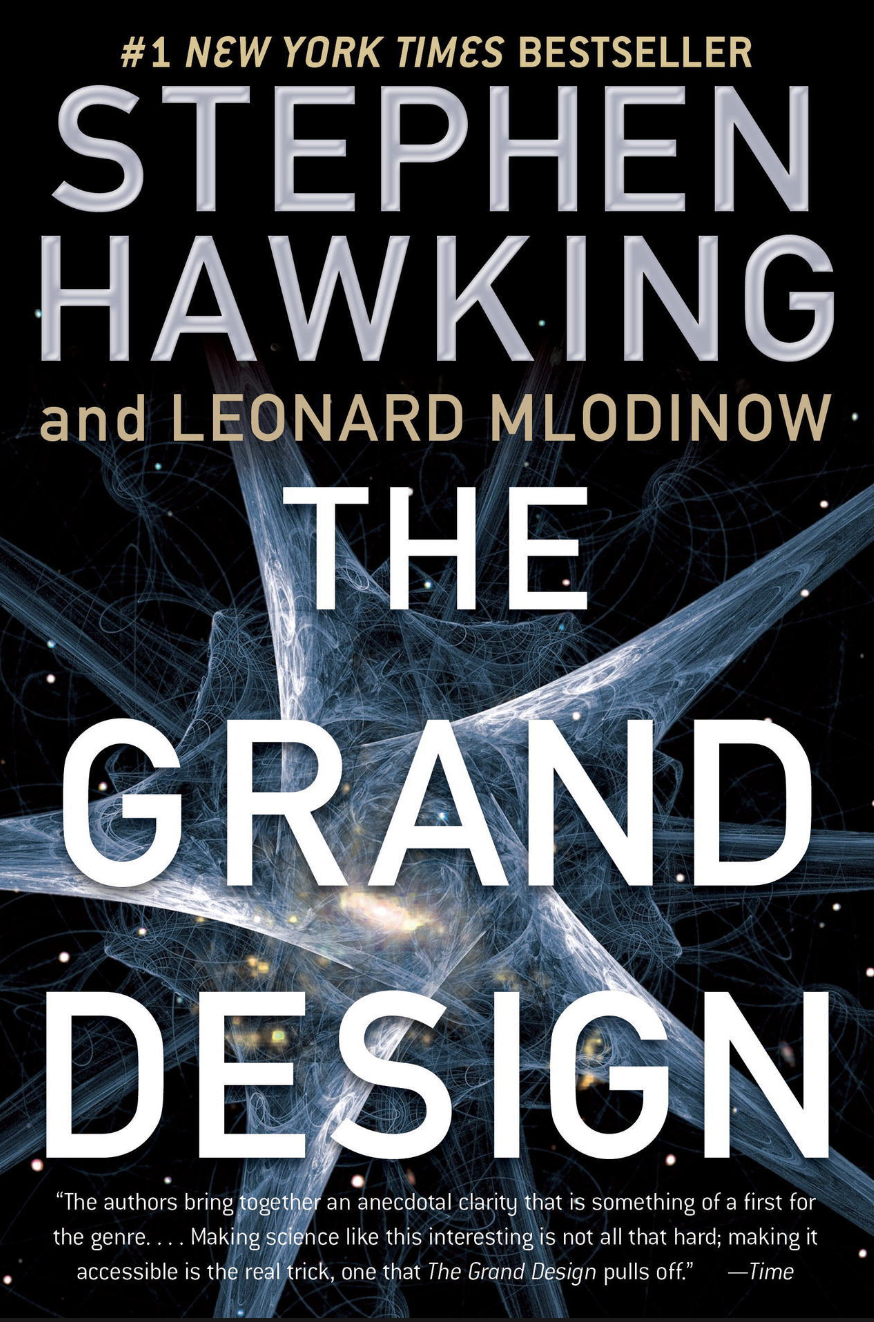The Grand Design (Stephen Hawking)

Passages from The Grand Design by Stephen Hawking:
- Because there is a law such as gravity, the universe can and will create itself from nothing. Spontaneous creation is the reason there is something rather than nothing, why the universe exists, why we exist.
- In the early universe—when the universe was small enough to be governed by both general relativity and quantum theory—there were effectively four dimensions of space and none of time. That means that when we speak of the “beginning” of the universe, we are skirting the subtle issue that as we look backward toward the very early universe, time as we know it does not exist! We must accept that our usual ideas of space and time do not apply to the very early universe. That is beyond our experience, but not beyond our imagination, or our mathematics.
- Recent experiments in neuroscience support the view that it is our physical brain, following the known laws of science, that determines our actions, and not some agency that exists outside those laws. For example, a study of patients undergoing awake brain surgery found that by electrically stimulating the appropriate regions of the brain, one could create in the patient the desire to move the hand, arm or foot, or to move the lips and talk. It is hard to imagine how free will can operate if our behaviour is determined by physical law, so it seems that we are no more than biological machines and that free will is just an illusion.
- Quantum physics might seem to undermine the idea that nature is governed by laws, but that is not the case. Instead it leads us to accept a new form of determinism: given the state of a system at some time, the laws of nature determine the probabilities of various futures and pasts rather than determining the future and past with certainty.
- Quantum physics tells us that no matter how thorough our observation of the present, the (unobserved) past, like the future, is indefinite and exists only as a spectrum of possibilities. The universe, according to quantum physics, has no single past, or history. The fact that the past takes no definite form means that observations you make on a system in the present affect its past.
